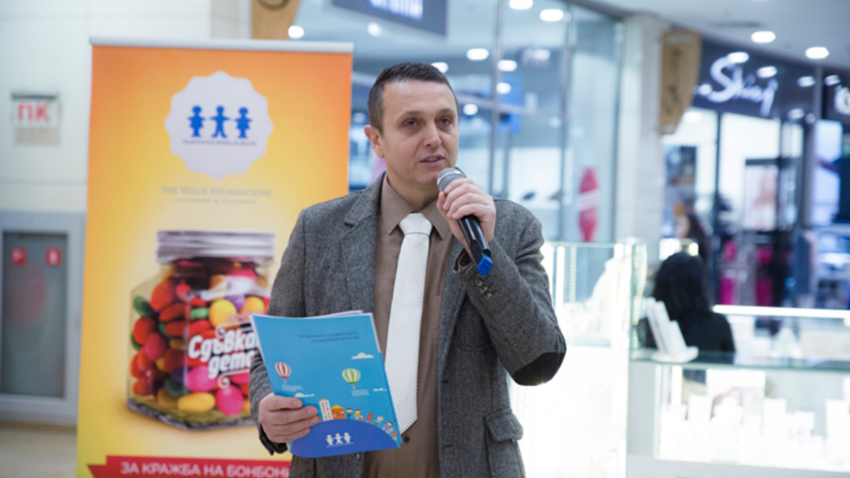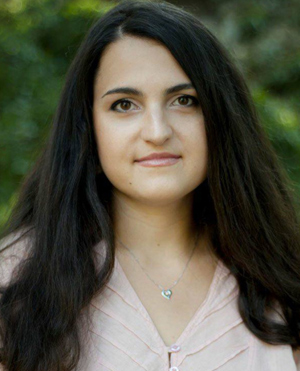The labor educational schools from the socialist era still exist today, although their name has been changed to youth detention centers. A 1958 act says that kids who have escaped from home, or are beggars, tramps, or have stolen food must be locked in between four walls and deprived not only from their freedom, but also from basic rights – a life within an environment that protects their dignity, also education of good quality and psychological and medical assistance.
The For More Humane Juvenile Justice Campaign of the National Network for Children aims at a reform in the system of juvenile justice. First that would be the revocation of the 60-year-old Law on Fighting Antisocial Acts of Minors and Underage Children, closure of the detention centers and implementation of up-to-date measures for work with such children, amidst tolerant public environment.

 “Besides punishment, the state should provide social assistance to those children who have done something wrong, as this is the only way in which they would cease their harmful acts,” says Dilyana Slavkova, a coordinator with the National Network for Children. “A huge number of these kids live in extreme poverty, in an environment of violence and terror – hence their criminal behavior.”
“Besides punishment, the state should provide social assistance to those children who have done something wrong, as this is the only way in which they would cease their harmful acts,” says Dilyana Slavkova, a coordinator with the National Network for Children. “A huge number of these kids live in extreme poverty, in an environment of violence and terror – hence their criminal behavior.”
Thousands of children are treated as criminals and sent to the detention centers each year, but those places do not make them better people. The conditions there are worse than in a prison and often they turn into victims of violence, the National Network for Children representatives say.
“The detention centers tend to be situated at isolated spots and besides that the personnel cannot cope with so many kids,” Dilyana Slavkova says. “The Rakitovo educational center for instance is in the suburbs, with no hot water and the children visit a public bath once per week. No matter the level of expertise of the personnel or their will the system itself doesn’t allow real educational and social activity. There is no state statistics on how many of the released children continue with their anti-social acts after their release, but field observations show that their percentage is pretty high.”
There is this other issue with penalties often exceeding the seriousness of the violation.
“There are even cases when Bulgaria has been sentenced by the European Court of Human Rights,” Dilyana Slavkova recalls. “For instance, children have been accommodated into detention centers as an asylum measure because they have been victims of human trafficking and they could go nowhere else. Or getting in there for the theft of a cake – another case. However, the accommodation of children aged 8 – 10 is the most drastic thing, as it is inadmissible.”
The closing down of the detention centers and their replacement with centers for educational monitoring has been one of the draft bill ideas of the judicial ministry for the past couple of years or so. It envisages the centers’ situating into large settlements only, with the number of children accommodated not exceeding 10. The draft bill is scheduled for the parliament’s May agenda, but there has been no consensus so far between the ministries on the responsibilities’ distribution. That is why the National Network for Children will continue with its campaign, accentuating on the necessity for inclusion of the children into groups, managed by social workers from the child protection departments and also on providing them with the now missing specialized service. In the meantime the NGO will develop activities within its four Centers for the Child Rights in Sofia, Vratsa, Pazardjik and Ruse, where psychologists, social workers and legal advisors provide support for children in conflict with the law. “We have been achieving very good results and our work proves that exactly the lack of social support is the main thing wrong with the current system,” Dilyana Slavkova says in conclusion.
English version: Zhivko Stanchev
Deanna Haag was born in Cleveland, Ohio, USA. She grew up dreaming of adventure and new horizons. After graduating from Wittenberg College in Ohio with a degree in Fine Arts, her life took an unexpected turn. The young American stood out for her..
Support for the activities of the Institute of Social Activities and Practices in Sofia is the cause that will unite organizers and guests of the Viennese Ball, which has become a tradition for the Bulgarian capital. This year's edition, scheduled..
Topics related to renewable resources and natural disasters united students from the Bulgarian Sunday School "Assen and Iliya Peykovi" in Rome, the First English Language School in Sofia and the Greve High School near Copenhagen. The project aims to..
Exactly 3 years ago, on February 24, Russia’s invasion of Ukraine began – an event that woke up Europe 77 years after the end of World War II and called..

+359 2 9336 661
